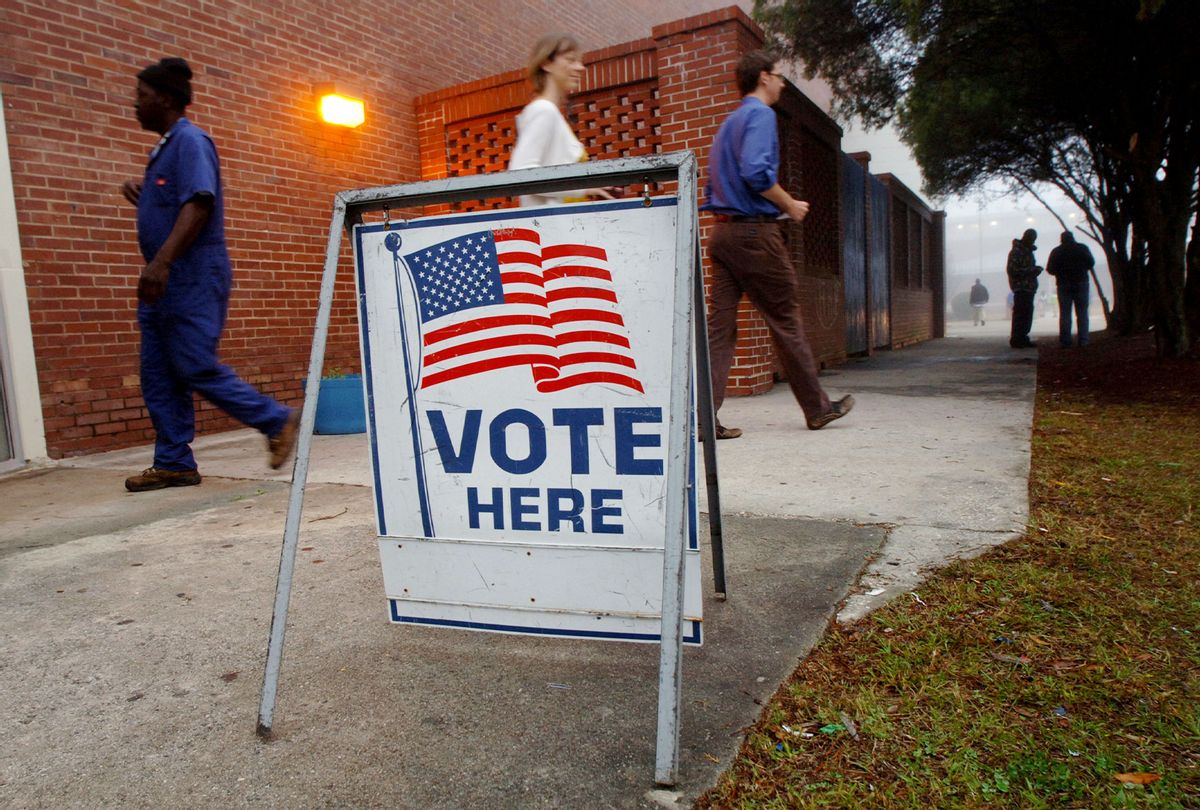Delaware House tees up bill to allow corporations to vote

The Delaware House has teed up a vote on a bill that would give businesses a vote in the town of Seaford, Delaware — a proposal with frightening implications for elections in a time when lawmakers are increasingly targeting voting rights.
The bill allows Seaford — a town of roughly 8,500 people — to amend its charter to allow non-resident business owners to cast a vote in local elections, meaning that corporate entities and businesses would enjoy the same voting rights as actual citizens in the town. Rather than the democratic principle of “one person, one vote,” the bill codifies the principle of “one person/entity/one vote,” as the bill text reads.
Though a business owner living in Seaford wouldn’t be allowed to vote in a local election twice, a business owner who resides out of town would be allowed to cast a vote. This means that a business owner would get to vote multiple times: in the place they live in as a citizen, and in Seaford or any other place with a similar law where their business is located.
The bill passed the state House Administration Committee unanimously last month. The legislature has set a vote on the bill for Tuesday.
There are 234 entities registered in Seaford. This means that business owners could potentially be the deciding factor in elections, as only 340 people total voted in the last city council election in April; one city council member lost his reelection by 54 votes.
Voting rights advocates have denounced the bill, saying that it erodes democratic values and projects a dangerous message that businesses should enjoy the same rights as people.
“‘One person, one vote’ is a long agreed upon principle that governs our elections. Proponents of this bill have tried to frame this as an innocuous way to give business owners more power, but in reality, this legislation has the power to transform our elections for the worse,” said Claire Snyder-Hall, executive director of watchdog group Common Cause Delaware.
“In tandem with Delaware’s lenient incorporation regulations, this legislation could give LLCs, trusts, and outsiders the power to dominate Seaford’s elections,” Snyder-Hall continued. “Artificial entities should not have voting rights.”
If the legislature approves the proposal, it wouldn’t be the first time in Delaware, where incorporated businesses outnumber the population 2 to 1, due in large part to the state’s lenient corporate income tax laws that allow business owners to stay anonymous.
In Newark, Delaware, the city council was forced to specify that businesses don’t get a vote after one property manager voted 31 times in a 2018 referendum greenlighting $28 million in capital investments.
Some progressive lawmakers have introduced legislation to ban towns from allowing businesses to vote in municipal elections, but the bill has not seen any movement.
The Seaford proposal harkens to centuries past when voting rights in the U.S. were restricted to landowners, as was the case in the 1700s and 1800s; during much of this time, only white men who owned land could vote. To this day, white people are overrepresented in business ownership.
In other words, the proposal is a form of voter suppression, diluting the views of actual people while giving favor to business owners. Snyder-Hall also likened the proposal to a worse version of Citizens United v. Federal Elections Commission, the landmark Supreme Court ruling that granted corporations the same right to free speech in campaign finance as individuals.
“After Citizens United, this is another step down the road to corporate tyranny,” Snyder Hall told The Lever. “It’s bad enough that Citizens United gives corporations free speech rights. Now Seaford wants to give voting rights to corporations.”

